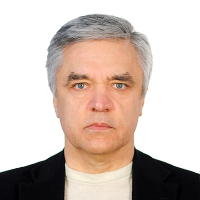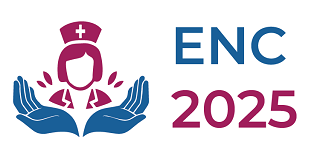ENC 2025

The Russian University of Medicine and Russian Academy of Natural Sciences, Russia
Abstract:
A new systems approach to diseased states and wellness result in an upgraded model in the healthcare services, personalized and precision medicine (PPM). The implementation of PPM would require major changes and challenges, including the incorporation of IT technology to introduce support tools for the clinical use and also brings important implications for nursing to secure PPM-based strategies.Regarding the above-mentioned features of PPM, nurses of the next-step generation need to be prepared to assist patients in interpreting the results of consumer-based testing, and/or referring to the targeted specialists as needed. Nurses need to assess clinical risk factors; discuss and clarify patient values and priorities; provide information to enhance decision making around screenings or risk-reducing treatments; and provide support for family notification and testing as indicated.For nursing services of the near future to come, the main challenge is the incorporation of the OMICS-technologies in training and professional practice, so that nurses can empower themselves to provide personalized care to individuals and families based on PPM-driven innovations.To meet the new demands for care, these advances need to be incorporated into professional nursing practice and, above all, into nursing care. In order for patients and their families to fully benefit from the explosion of genomic knowledge, healthcare professionals, especially nurses, need to grasp the underlying principles of genomics that have been shaping all healthcare practice and care. Therefore, the necessary emphasis on the professional training of nurses based on genomics will become an important requirement as the omics sciences will become part of routine care, no longer being exclusively an area of specialization. Nurses face increasing challenges and opportunities in communication, support, and advocacy for patients given the availability of advanced testing, care and treatment in PPM. Meanwhile, the current curricula for training nurses often fail to give them the knowledge they need to deliver precision care and thus do need to understand PPM in some depth. And a lack of medical guidelines has been identified by responders as the predominant barrier for adoption, indicating a need for the development of best nursing practices! So, nursing education and continuing education, clinical decision support, and health systems changes will be necessary to provide personalized multidisciplinary care to patients, in which nurses play a key role. And getting education and collaboration right for PPM-driven resources could be just a first step towards a more universal involvement of nurses in precision health!
Biography:
Sergey Suchkov was born in the City of Astrakhan, Russia, in a family of dynasty medical doctors, and in 1980, graduated from Astrakhan State Medical University being awarded with MD. In 1985, Suchkov maintained his PhD at Sechenov University and Institute of Medical Enzymology. In 2001, maintained his Doctor Degree at the National Institute of Immunology, Russia. From 1989 through 1995, a Head of the Lab of Clin Immunology, Helmholtz Eye Res Institute in Moscow. From 1995 through 2004 - a Chair of the Dept for Clin Immunology, Moscow Clinical Research Institute (MONIKI). In 1993-1996, was a Secretary-in-Chief of the Editorial Board, Bio-medical Science, an international journal published jointly by the USSR Academy of Sciences and the Royal Society of Chemistry, UK.
